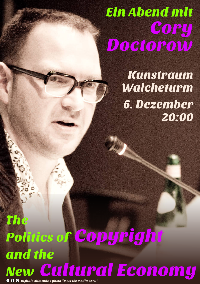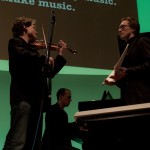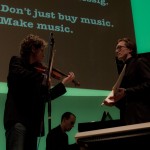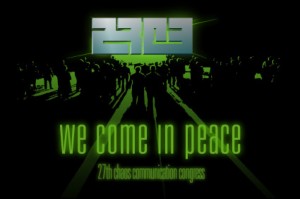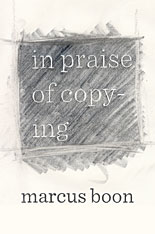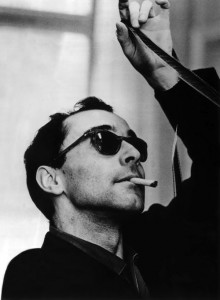The digital need for freedom
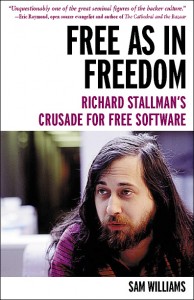 This is becoming a hassle again. The way the Apple operation system OS X evolves is not convenient to my personal needs and the way I want to use my computer. Apple managed to incorporate impure and illicit functionalities into their operation system, that locks the user into a product range, which they control. The users freedom of choice and control fades away, thus OS X Lion is based on BSD UNIX. The command line is the only application that is turning out to allow full straightforward and controlled accessibility to the system and information. After intensively having tested and deployed OS X Lion, I decided that my next computer has to be a complete GNU/Linux machine again. Steve is dead now anyways, so things won’t improve.
This is becoming a hassle again. The way the Apple operation system OS X evolves is not convenient to my personal needs and the way I want to use my computer. Apple managed to incorporate impure and illicit functionalities into their operation system, that locks the user into a product range, which they control. The users freedom of choice and control fades away, thus OS X Lion is based on BSD UNIX. The command line is the only application that is turning out to allow full straightforward and controlled accessibility to the system and information. After intensively having tested and deployed OS X Lion, I decided that my next computer has to be a complete GNU/Linux machine again. Steve is dead now anyways, so things won’t improve.
Looking around in the local stores, no vendor seems to offer a up-to-date notebook computer, which respects the users choice for freedom. Either I am offered a 1 years old computer, for which I would have to wait for 3 weeks, or I’d have to “bite into the sour apple” and buy a computer, which, – illicitly, – comes together with an operation system, for which I’d have to pay for, thus I’d never use it.
In my e-mail to Lenovo I get the answer:
“Dear Alex,
Thank you for contacting Lenovo.
We apologize. We do not support any other Operating System apart from Windows.
Sincerely,
Deboshree Mukherjee”
… whereas my answer follows like
“Dear Deboshree
That is very sad to read. Sounds like your company is bound to unfair
competition* and does not allow users freedom either.Do I at least have the possibility to acquire a computer, without
having to pay the license of an operation system, such as M$ Wind00ze,
which I wouldn’t use?Sorry to say that I won’t acquire a computer that forces me to use an
operating system that is unresistant to viruses and locks me into the
choice of the manufacturers formats and applications.
How comes that M$ is legally capable to establish such a contract with
your company that your products are bound to an operation system that
violates human rights?
Thus technology still evolves thanks to innovators, that are freely
sharing their ideas and creativity, based on the principles that
know-how and knowledge want to be free (as in freedom).Let me kindly remind you, that your company, that was former IBM, has
historically evolved based on this principles!As I am working in the field in technology research, I strongly have
to make sure, that I have complete control over my devices and
instruments. – This is only possible with software that is
non-proprietary, such as GNU/Linux & UNIX.Wishing you all the best & remaining with kindest regards, Alex
*(which in my country is a crime.)”
I need a hardware manufacturer and vendor who grants me my human rights and freedom, without violating international competition laws and rights.
[Update 4th of October 2011]
Lenovo, – surprisingly, – writes back.
“Dear Alex,
Thank you for your feed back and for your time and patience! We will surely forward this e-mail to the appropriate department to review for the betterment of the company. Thank you once again.
Sincerely,
Deboshree Mukherjee”
“Dear Deboshree
Thank you for your e-mail.
Would be great, if you could forward our correspondence to the respective department. I appreciate and, – honestly, – did not expect and answer.I am sure you understand my concern and hope that we can establish a fair business relationship. It would be disappointing to see that your great computer products couldn’t be used together with an operation systems that guarantees freedom.
Have a good weekend and looking forward to read you soon again, Alex”
